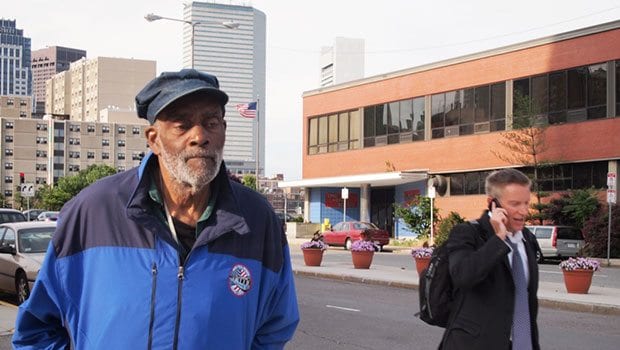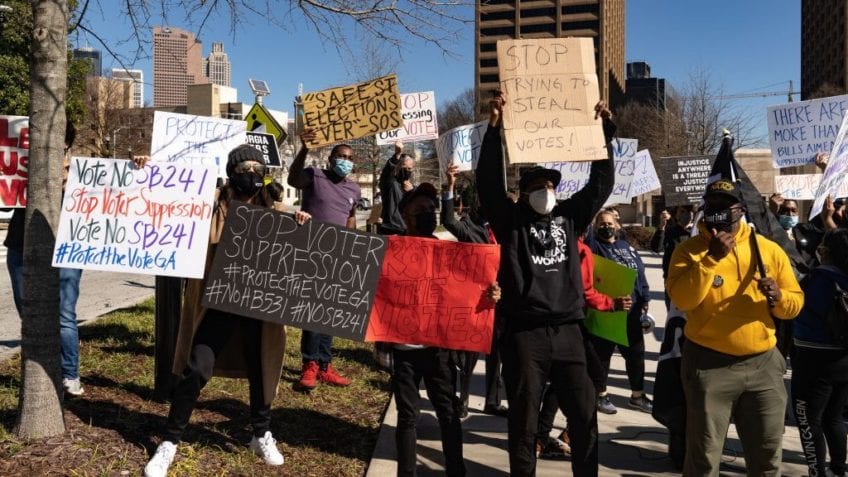Community activist Mel King questions new luxury development at former Boston Herald site

When I recently learned about plans for developing the “Ink Block” — so called because the area housed the Boston Herald — I was reminded of when I received a copy of the late Boston Traveler newspaper while attending Claflin College in South Carolina. The early 1950’s headline said that I lived on “skid row,” in a “slum.” I was amazed. After all, we called it “home.”
Where I lived was one of the most multicultural, multiracial, multiethnic communities that one could find anywhere. In my mind, the richness of the community and its relationships made it one of the nicest places to live. My block was truly amazing and very consistent with the ideal of a community family that shares.
Seeing that headline long ago, I was very upset as I tried to figure out what it meant. Later I learned it was a ploy: Declaring the area “blighted” was a prerequisite for access to urban renewal funds so the area could be taken over for businesses, including the Herald Traveler newspapers.
After graduation, I worked part time at the Lincoln House Settlement in the South End while pursuing a graduate degree. Later, as a full-time staff member, I learned a formative lesson. In contrast with what had happened to my neighborhood, staff and residents organized to challenge the pending destruction of the Castle Square neighborhood where my cousins lived. They eventually convinced the BRA to build the replacement housing known today as Castle Square Development, guaranteeing the right-of-return to the displaced residents.
Watching the community and Lincoln House staff mobilize taught me that organized resistance, with a plan based on fairness and justice, provided a model to emulate. It became an important part of our struggles to change the process in other parts of Boston’s South End, including the Tent City complex near Copley Place.
Another lesson learned was the concept of self-definition — not allowing others to define and label you and your home. When you are motivated because your self-definition asserts you are somebody and you have “inalienable rights,” there is a strong basis for not letting discouragement stop you.
A few years after the Herald moved in, I visited the owner in his office and said we were neighbors. He asked, “Do you live in Danvers?” “No,” I smiled as I replied, “You are sitting where I was born and raised.” To think I used to live there, yet they had the audacity to call it the Ink Block, memorializing the paper that benefitted from using negative descriptions as a weapon of mass displacement and demeaning what folks called home.
I call it the Ink Blot, because it blotted a way of life that tried to bring out the best in people. And now, the BRA, fronting for the mayor, is once again promoting a class-cleansing approach to development. The land has been taken — this time at a very high price — for the development of housing which will not go to a representative cross-section of Boston residents because housing prices are at a level that severely limits access.
Here’s what should happen:
- Housing built under city supervision should reflect the inclusive policy of one-third low income, one-third moderate income, and one-third market rate. The Tent City Development is a model for such inclusive housing.
- The Boston resident jobs policy should be enforced, with goals of 51 percent Boston residents, 51 percent people of color, and 15 percent women. Further, Boston subcontractors should be recruited for 50 percent of construction jobs, training, and opportunities.
- There should be a written and signed agreement that specifically includes a 10 percent hiring goal of Asian-Americans in construction work and a first-source hiring agreement with Chinatown organizations for permanent jobs with a living wage. Chinatown residents are being pushed out — ink-blotted out — not only from their community, but also from employment opportunities in the booming construction industry.
It’s time to print a new page where we can read about the richness of a community where all are welcome and all the gifts are shared.


![Banner [Virtual] Art Gallery](https://baystatebanner.com/wp-content/uploads/2024/04/Cagen-Luse_Men-at-store-e1713991226112-150x150.jpg)



